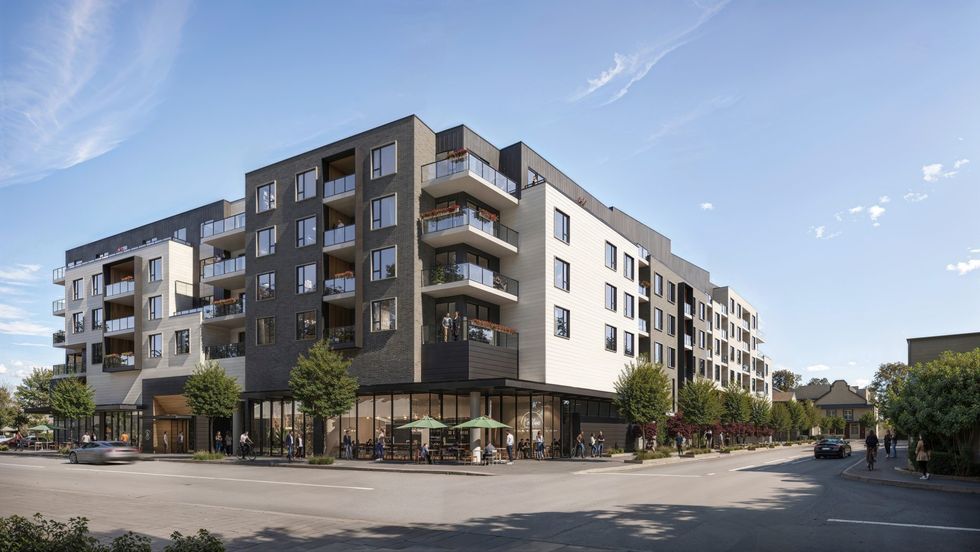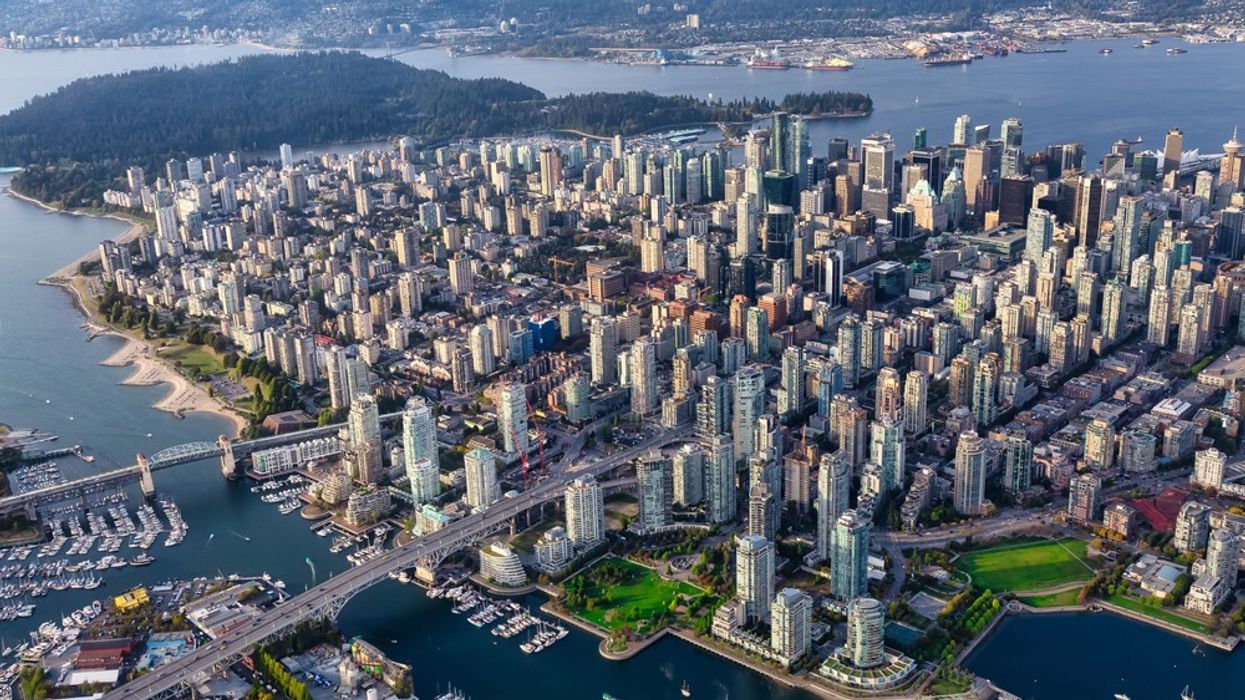Retaliatory tariffs are proving unpopular with Vancouver’s development industry, with several developers dismissing the idea as detrimental to an already weak market. Instead, some see the attack as an opportunity to develop our own industries, which, they concede, will take time and leadership.
“I can tell you that from the development side, it doesn’t necessarily help the development community adding counter tariffs, because it just makes things more expensive for us in the end,” says McGregor Wark, Vice President of Headwater Projects. “I can understand the thought process behind it, but it ends up hurting us more than helping us in a lot of these situations, so they have to be very careful about what items they are going to place tariffs on, and what the ripple effects are on those items, that they aren’t going to impact us negatively or put us in a more precarious position than before. There needs to be a lot of thought put into it before they jump on board and say, ‘we are going to counter tariff everything.’
“I don’t think you can, in my opinion, fight back and try and counteract the bully because the repercussions of that will have massive impacts on us as a country. We are already forecasting the economy is going to get worse here, and how bad do we want to make it?”
Developer and philanthropist Michael Audain, who founded Polygon Homes in 1980 and has delivered 35,000 homes to market, said in an email that he feels the same about counter tariffs.
“I believe it’s in the interest of countries with relatively small populations such as Canada to promote and practice free trade. Erecting our own retaliatory tariffs simply means our consumers will need to pay more for goods, including housing. And we don’t constitute a sufficiently large [enough] market for us to punish another country by slapping tariffs on them. But I’m not a learned economist, just a simple home builder.”
Developer and consultant Michael Geller said that for the first time in a long time we’re looking at a market without presale financing. Lenders typically require that around 60% or 70% of the building is pre-sold to qualify for construction financing. Geller also opposes counter tariffs.
“I think it’s a mistake,” he said. “I think we should let in less expensive Chinese electric cars, because the fact that they are now imposing a tariff on our seafood, and our canola, is going to do a lot of harm. I’m not an economist, but I think this tit for tat approach doesn’t really work.
“I don’t see it doing any good, especially for the construction industry. I think every day I get a couple of articles on how tariffs will impact the residential construction business, and it’s happening.
“I spoke this morning with a builder who was telling me, every sub-trade is writing into their bids that the amount is subject to an adjustment depending on what happens with tariffs.”
A KPMG survey released in January showed that 85% of Canadian businesses supported the government using retaliatory tariff measures to “stand firm in protecting Canada’s sovereignty and values.” Clearly, it’s not a sentiment shared across the board, at least not in the real estate industry in Metro Vancouver.
One of the sad aspects of the current tariff war is that, for the BC real estate and development industries, it would have likely been a banner year compared to 2024. Real estate sales had picked up in response to the lower interest rate, and developers and realtors were looking forward to a year of recovery.
“We were starting to see light at the end of the tunnel, things were starting to look better and then, all of a sudden, the carrot on the other side of the border decided to throw a wrench in our plans,” said Wark, referring to US President Donald Trump.
“There are not a lot of great things happening in the real estate market right now... no one knows what’s happening, including us, the developer.”
Kelowna realtor Richard Deacon saw a lot of activity in January.
“The complication is we still have a lot of inventory in our market... If the tariffs cause any kind of angst or pause or confusion, which they probably will, you may see another downtick… I am definitely hearing from clients that are frustrated, and not sure what to do.”
The market is dead for speculative home builders, he said. And the pre-sale condo market is floundering.
“The only market in the case of condos is for people who can simply finance the project themselves, without presales, and they just build it and there’ll be demand for the completed product,” said Geller.
“We haven’t done that for ages, but 50 years ago, that’s how we did it. In the old days, the banks would do the underwriting, look at the credentials of the developer, assess if there’s a market, look at the costs and decide whether to lend or not. Presales only came along in the 1980s.”
That lack of clarity is particularly hard for developments that haven’t gone through the rezoning and permitting process, that haven’t begun presales. Wark’s 131-unit Bridge & Elliott Ladner condo project is almost entirely sold, so it’s far enough along to not cause concern, he said.

“It’s the people behind us about six months that I fear for, and further beyond that, people who own the land and they’ve got to move forward, but they have a long process in front of them,” Wark said. “Hopefully this is a short-term thing, but it’s anybody’s guess what happens over the next three, six, nine, 12 months.”
Ben Taddei, Partner and Chief Operating Officer at Conwest Developments, has been in the industry for 35 years, and he said there’s reason to be optimistic, but it depends on the national response to Trump’s tariffs. Taddei writes a lot about world politics and the economy on social media.
“From a nation’s perspective – and this is all over my LinkedIn – I’m a believer that a strong offence is a strong defence. I classify ‘offence’ as we need to deal with our national mindset, which has become that of a welfare state over the past decade or so. Unless we deal with that, we are not going to address the issues: we need to open the resource base; we need to become a destination that foreign direct investment wants to come to. And then we need to lever these resources into the new economy and high-value manufacturing.
“You’ve seen productivity declining, real incomes declining, and you’ve seen the erosion of the quality of life through inflation and the lack of high-value jobs. And it’s all caught up to us now. And the other thing we are seeing are impacts of tightening monetary policy.
“From the perspective of the developer, the building community, do we value reciprocal tariffs? I think the answer is a hard no. Why a hard no? Because the building industry model in BC and Metro Vancouver is broken. You see that everywhere. You can’t make money. And I know that everybody thinks developers are evil, and should work for free, but they forget that we need to draw upon capital for us to do what we need to do – and the capital doesn’t want to invest in high-risk, low-return projects. Therefore, nothing gets built other than affordable housing. That’s where we are at.
“And reciprocal tariffs – and tariffs in general – just compound our problem. So that is the mindset that the developer has.
“We need to re-industrialize our country, so we get away from the bulk of our jobs being low-paying service jobs to high-paying resource-based jobs of the fourth industrial revolution, which we have ignored for the last ten years.”
And if we do those things, Taddei added, “Canada will roar.”
“In 35 years, I have never been more optimistic about the future of British Columbia and Canada as I am now, provided we do what we must do to address our issues. If we don’t, it will be the opposite, it will get worse.”





















